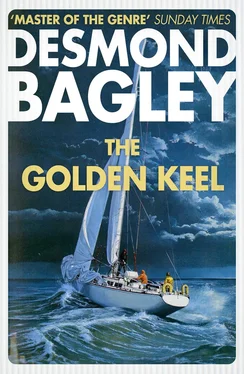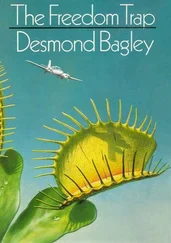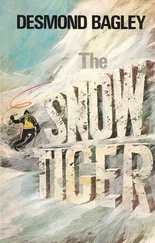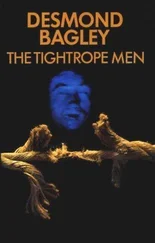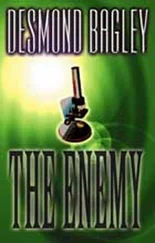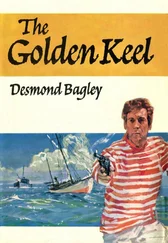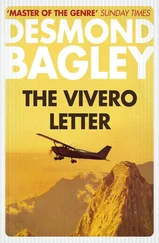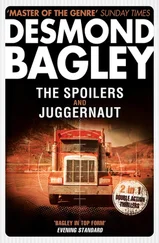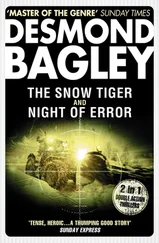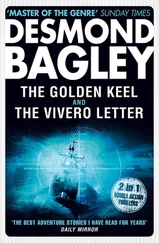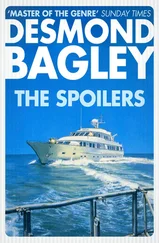She looked up. ‘What was all that about?’
I was startled. It was a long time since I’d thought of Walker and Coertze and the drama that had been played out in Italy. I smiled and said, ‘I might have made a fortune but for that news story.’
‘Tell me about it?’
‘It’s a long story,’ I protested. ‘I’ll tell you some other time.’
‘No,’ she insisted. ‘Tell me now; I’m always interested in treasure.’
So I pushed the unopened mail aside and told her about Walker and his mad scheme. It came back to me hazily in bits and pieces. Was it Donato or Alberto who had fallen – or been pushed – from the cliff? The story took a long time in the telling and the office work got badly behind that day.
I met Walker when I had arrived in South Africa from England after the war. I had been lucky to get a good job with Tom but, being a stranger, I was a bit lonely, so I joined a Cape Town Sporting Club which would provide company and exercise.
Walker was a drinking member, one of those crafty people who joined the club to have somewhere to drink when the pubs were closed on Sunday. He was never in the club house during the week, but turned up every Sunday, played his one game of tennis for the sake of appearances, then spent the rest of the day in the bar.
It was in the bar that I met him, late one Sunday afternoon. The room was loud with voices raised in argument and I soon realized I had walked into the middle of a discussion on the Tobruk surrender. The very mention of Tobruk can start an argument anywhere in South Africa because the surrender is regarded as a national disgrace. It is always agreed that the South Africans were let down but from then on it gets heated and rather vague. Sometimes the British generals are blamed and sometimes the South African garrison commander, General Klopper; and it’s always good for one of those long, futile bar-room brawls in which tempers are lost but nothing is ever decided.
It wasn’t of much interest to me – my army service was in Europe – so I sat quietly nursing my beer and keeping out of it. Next to me was a thin-faced young man with dissipated good looks who had a great deal to say about it, with many a thump on the counter with his clenched fist. I had seen him before but didn’t know who he was. All I knew of him was by observation; he seemed to drink a lot, and even now was drinking two brandies to my one beer.
At length the argument died a natural death as the bar emptied and soon my companion and I were the last ones left. I drained my glass and was turning to leave when he said contemptuously, ‘Fat lot they know about it.’
‘Were you there?’ I asked.
‘I was,’ he said grimly. ‘I was in the bag with all the others. Didn’t stay there long, though; I got out of the camp in Italy in ’43.’ He looked at my empty glass. ‘Have one for the road.’
I had nothing to do just then, so I said, ‘Thanks; I’ll have a beer.’
He ordered a beer for me and another brandy for himself and said, ‘My name’s Walker. Yes, I got out when the Italian Government collapsed. I joined the partisans.’
‘That must have been interesting,’ I said.
He laughed shortly. ‘I suppose you could call it that. Interesting and scary. Yes, I reckon you could say that me and Sergeant Coertze had a really interesting time – he was a bloke I was with most of the time.’
‘An Afrikaner?’ I hazarded. I was new in South Africa and didn’t know much about the set-up then, but the name sounded as though it might be Afrikaans.
‘That’s right,’ said Walker. ‘A real tough boy, he was. We stuck together after getting out of the camp.’
‘Was it easy – escaping from the prison camp?’
‘A piece of cake,’ said Walker. ‘The guards co-operated with us. A couple of them even came with us as guides – Alberto Corso and Donato Rinaldi. I liked Donato – I reckon he saved my life.’
He saw my interest and plunged into the story with gusto. When the Government fell in 1943 Italy was in a mess. The Italians were uneasy; they didn’t know what was going to happen next and they were suspicious of the intentions of the Germans. It was a perfect opportunity to break camp, especially when a couple of the guards threw in with them.
Leaving the camp was easy enough, but trouble started soon after when the Germans laid on an operation to round up all the Allied prisoners who were loose in Central Italy.
‘That’s when I copped it,’ said Walker. ‘We were crossing a river at the time.’
The sudden attack had taken them by surprise. Everything had been silent except for the chuckling of the water and the muffled curses as someone slipped – then suddenly there was the sound of ripped calico as the Spandau opened up and the night was made hideous by the eerie whine of bullets as they ricocheted from exposed rocks in the river.
The two Italians turned and let go with their sub-machine-guns. Coertze, bellowing like a bull, scrabbled frantically at the pouch pocket of his battle-dress trousers and then his arm came up in an overarm throw. There was a sharp crack as the hand grenade exploded in the water near the bank. Again Coertze threw and this time the grenade burst on the bank.
Walker felt something slam his leg and he turned in a twisting fall and found himself gasping in the water. His free arm thrashed out and caught on a rock and he hung on desperately.
Coertze threw another grenade and the machine-gun stopped. The Italians had emptied their magazines and were busy reloading. Everything was quiet again.
‘I reckon they thought we were Germans, too,’ said Walker. ‘They wouldn’t expect to be fired on by escaping prisoners. It was lucky that the Italians had brought some guns along. Anyway, that bloody machine-gun stopped.’
They had stayed for a few minutes in midstream with the quick cold waters pulling at their legs, not daring to move in case there was a sudden burst from the shore. After five minutes Alberto said in a low voice, ‘Signor Walker, are you all right?’
Walker pulled himself upright and to his astonishment found himself still grasping his unfired rifle. His left leg felt numb and cold. ‘I’m all right,’ he said.
There was a long sigh from Coertze, then he said, ‘Well, come on. Let’s get to the other side – but quietly.’
They reached the other side of the river and, without resting, pressed on up the mountainside. After a short time Walker’s leg began to hurt and he lagged behind. Alberto was perturbed. ‘You must hurry; we have to cross this mountain before dawn.’
Walker stifled a groan as he put down his left foot. ‘I was hit,’ he said. ‘I think I was hit.’
Coertze came back down the mountain and said irritably, ‘ Magtig , get a move on, will you?’
Alberto said, ‘Is it bad, Signor Walker?’
‘What’s the matter?’ asked Coertze, not understanding the Italian.
‘I have a bullet in my leg,’ said Walker bitterly.
‘That’s all we need,’ said Coertze. In the darkness he bulked as a darker patch and Walker could see that he was shaking his head impatiently. ‘We’ve got to get to that partisan camp before daylight.’
Walker conferred with Alberto, then said in English, ‘Alberto says there’s a place along there to the right where we can hide. He says that someone should stay with me while he goes for help.’
Coertze grunted in his throat. ‘I’ll go with him,’ he said. ‘The other Eytie can stay with you. Let’s get to it.’
They moved along the mountainside and presently the ground dipped and suddenly there was a small ravine, a cleft in the mountain. There were stunted trees to give a little cover and underfoot was a dry watercourse.
Читать дальше
